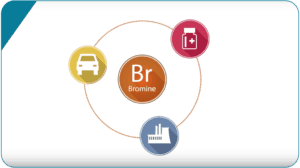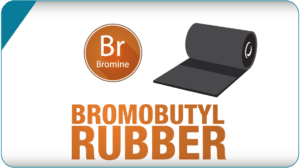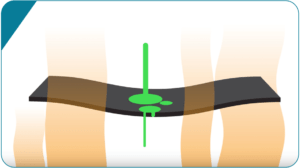
17 Oct Bromobutyl rubber for safer driving
Cars are still one of the most popular modes of transportation today (over 70% of journeys are made by car). However, busier traffic also means a much higher risk of becoming involved in an accident, meaning that safety on the roads is critical.
What is driving the automotive industry?
The European passenger car market grew by 2.4% during the first three months of 2018, with 4.8 million vehicles sold (representing 21% of the global car market).
Currently there are about 260 million cars driving around Europe, with an average of 587 cars per 1,000 inhabitants. Furthermore, the European commercial vehicle production is expected to increase by 3.4% in 2018.
Having all these cars on the road requires better safety measures. So what can we do to ensure the highest level of safety while driving?
Tyres matter, but why?
Unfortunately, being safe does not solely depend on the way you are driving. To a large extent it also depends on your tyres, as they are one of the most important parts of your car when it comes to safety. Although the brakes stop your wheels from turning, the grip of your tyres is the reason your car actually comes to a stop.
Furthermore, they determine acceleration, driving comfort, steering, traction and overall handling when driving. Hence, to ensure safe driving, it is of the utmost importance to choose high-quality tyres that are made of material that is adjusted to the roads and can withstand all kinds of road and weather conditions. Bromobutyl rubber serves this purpose.
Why use bromobutyl rubber for tyres?
Contemporary radial tyres contain bromobutyl rubber that is found in the inner lining, used to hold the tyres’ air. This lining prevents air from entering the tyre’s structure and affecting the rubber.
Thanks to its 100% polymeric structure, a bromobutyl polymer tyre has the lowest air permeability rate. This prolongs the tyre’s product life cycle and increases drivers’ and motorists’ safety on the road by avoiding tyre failure. On top of that it offers many other benefits:
- Consistent inflation pressure
- Reduction in in-use tyre rolling resistance thanks to to the better inflation pressure retention (resulting in the potential for less fuel consumption)
- More even-wear performance
- Longer inner tube life due to better heat stability
- Enhanced tyre durability
Thanks to these features, bromobutyl rubber has become the material of choice in the automotive industry for safe and reliable tyres.
What is bromobutyl rubber?
Bromobutyl rubber was developed in the 1940s and is derived from a combination of butyl rubber and bromine through a halogenation process.

Common applications
The specific properties of bromobutyl rubber allow it to be used in products and articles that require:
- low permeability to gases and liquids
For example: inner linings of tires, seals, membranes and hoses.
- cleanliness and good resealing properties
For example: medical stoppers, pharmaceutical closures and membranes
- good resistance to chemicals, weather conditions and ozone
For example: windscreen wipers, tank linings, conveyor belts and protective clothing

The advantages of bromobutyl rubber
Adding bromine to butyl rubber gives the material:
- significant physical strength
- low permeability to gases, air and liquids
- high resistance to weather, shock and age
- high resistance to acidic and basic chemicals
- stability at high temperatures
- faster cure rates
- good processing properties
- increased adhesion compared to other rubbers and metals
- better resistance to ozone and environmental elements

Have a look at our website to read more about BSEF’s view on bromobutyl rubber.
Do not hesitate to share this article, to give your opinion and to start the conversation.
SOURCES
http://bsef.com/bromine-applications/rubber/
https://www.michelinman.com/US/en/safe-driving.html
https://www.exxonmobilchemical.com/en/solutions-by-industry/automotive/tires
https://www.acea.be/statistics
https://www.acea.be/uploads/statistic_documents/Economic_and_Market_Report_Q1_2018.pdf
https://www.exxonmobilchemical.com/en/products-and-services/butyl/bromobutyl
http://lanxess.in/industries-products-india/industries-india/automotive-india/bromobutyl-rubber-india/
http://www.polyplastendustri.com/en/bromobutyl-rubber




No Comments